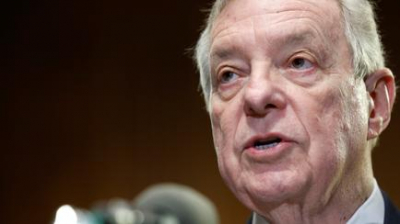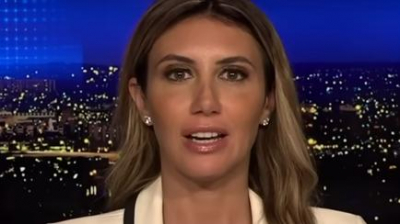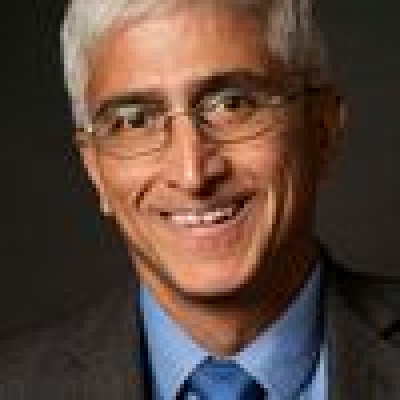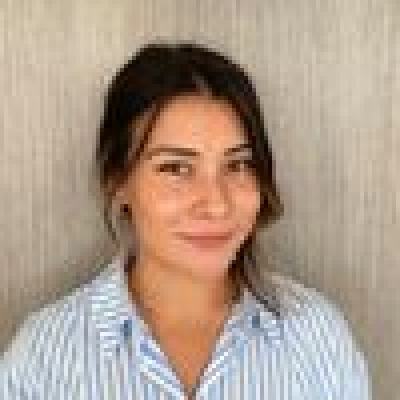I turned my gaze away from the nurse's motions as she secured the tourniquet around my arm and prepared the needle. It struck me then—I was the lone patient amidst a sea of individuals receiving intravenous chemotherapy. My neurologist, entertaining the possibility of my cryptogenic stroke being linked to a blood disorder like lymphoma or leukemia, had directed me to this hematology-oncology practice.
Just relax," the nurse murmured as the needle pierced my skin. I couldn't help but steal glances at the other patients, hooked up to IV drips. A wave of self-consciousness washed over me. Don't stare, I silently reprimanded myself. Having endured illness myself, I knew that the only eyes I'd want on me during treatment belonged to someone who cared deeply.
So, I shut my eyes tightly as the nurse began filling the first of nine vials. Barely an hour earlier, I found myself seated before a hematologist, his back turned to me as he briskly entered my responses into the computer.
Referring doctor?" he'd inquired.
Prior to my hospitalization?" I sought clarification. "Yes.
I saw my gynecologist two months ago.
My cardiologist implanted a loop recorder under my breast to monitor for arrhythmia.
Because I suffered a stroke two weeks ago, and the cause remains unknown," I explained.
Would you like to review my test results?
I hesitated briefly. "You don't have to answer," he reassured me.
Brief history of chief complaint?
You want me to recount the stroke?" I clarified.
Attempting to articulate the most harrowing moment of my life, I sensed an unsettling tension coiling within me. Words seemed to possess a peculiar power, as if they could summon forth reality like a spell. I wanted to question how my narrative of muscular collapse—my initial experience of the stroke—could offer insights into my blood composition, his purported domain of expertise. But he sat poised, fingers poised over the keys, awaiting my account. He was the authority figure, indispensable to my understanding. So, with a steadying breath, I began.
At 5:45 p.m., I rose from the couch to prepare for dinner with a friend. As I attempted to don my jeans, my body gave way beneath me, and I plummeted to the floor. I reached out for the bed's edge, but it felt as though I were trapped beneath an insurmountable weight. Then—
His typing ceased abruptly. Swiveling in his chair, he met my gaze directly for the first time.
So, you were lying on the floor with no shirt on and your pants pulled down?" he queried.
That's quite amusing. Can I share a humorous anecdote about being caught unprepared?" he pressed.
I stared at him, utterly bewildered. "It's really amusing," he insisted.
I wanted to retort, to question his professionalism and propriety, but I hesitated. Would challenging him only hinder my chances of receiving assistance? Reluctantly, I acquiesced. "Okay.
My father is a prominent lawyer, you see, and he and my mother attend numerous galas," he began, oblivious to my discomfort. As he recounted the tale, I struggled to conceal my astonishment at the realization that this doctor's first impression of me was an imagined scene of undress.
My mother, in her haste to preserve her gown's pristine condition, boarded the limo wearing nothing but her fur coat. Just as she was slipping it on, the valet swung open the door, catching a glimpse of her half-clad form! We often joke that he mistook my father's intentions for something untoward. Isn't it uproarious?" he chuckled.
Absolutely hilarious," I replied, mustering a strained smile. His laughter echoed as he turned away, evidently pleased with his storytelling prowess. I breathed a sigh of relief at the respite from direct eye contact.
And then what transpired?" he inquired.
My husband arrived and rushed me to the hospital," I divulged, intentionally truncating the narrative to avoid further digressions into inappropriate territory.
He completed his typing and escorted me to the door, where a young nurse awaited. "Prepare her for a physical examination," he instructed her, whispering something in her ear.
As I perched on the edge of the examination table, the nurse proceeded to take my temperature and blood pressure. "The doctor requests that you remove your shirt," she informed me, extending a paper gown. "Open to the front.
I hesitated, questioning the necessity of disrobing for a hematologist's examination. "Why does he need me shirtless? He's a hematologist," I protested.
She met my inquiry with a vacant stare. "Does he make everyone do this?" I pressed.
She shrugged, handing me the gown before exiting the room. "He seems fixated on the circumstances of my medical incident," I mused silently. Reluctantly, I shed my shirt and draped the paper gown over my shoulders, exposing my front.
He entered the room, the nurse lingering at a distance as if distancing herself from his actions. Approaching me, he began to delicately palpate my neck. I cast my gaze downward, feeling small and vulnerable, like a child seated at an adult's dinner table.
Then, without warning, he declared, "I'm going to conduct a breast exam. Please lie down." I glanced at the nurse, silently pleading for answers to the questions lingering in my mind. But she averted her gaze. Two weeks had passed since my stroke, and still, the mystery of its cause eluded me. At my neurologist's insistence, I had sought the expertise of a hematologist, specifically recommended by her. Reluctantly, I reclined on the examination table, diverting my gaze from his face and attempting to ignore the chill of his hands on my skin.
I focused on the popcorn ceiling above, pondering its composition—styrofoam? Asbestos? Polystyrene? Anything to distract from the discomfort of the situation. "You're all set. You can dress and meet the nurse for your blood draw," he announced abruptly, before departing the room with the nurse in tow. Left alone, I remained on the table, my hands seeking solace in the warmth of my own body.
A wave of discomfort washed over me as I reflected on the history of men treating women's bodies as objects to possess. His touch had left an indelible imprint, a reminder of that troubling legacy. I rose from the table, instinctively reaching for a paper towel and running warm water over it. With gentle motions, I cleansed my skin, reclaiming ownership of my body in the only way I could.
In the chemo suite, amidst the bustle of patients receiving treatment, it was easier to divert my thoughts to their struggles than to dwell on my own. But as the nurse drew vial after vial of blood, the nagging question resurfaced: Why had the doctor felt the need to conduct a breast exam, seemingly unrelated to my condition or medical history?
My mind raced, dissecting the encounter. Why hadn't he inquired about my recent mammogram results? If there were genuine medical concerns related to my stroke, wouldn't that information be pertinent? Doubt crept in as I pondered the appropriateness of his actions. Were hematologist-oncologists even trained to perform breast exams?
As the final vial was filled, the question lingered, unanswered and unsettling.
Upon returning home, I embarked on a quest for clarity, scouring the internet for any semblance of justification for a hematologist-oncologist's undertaking of a breast exam. My search yielded an enlightening passage from Dr. Maurie Markman, esteemed president of medicine and science at the City of Hope cancer center. He elucidated, "Hematologic malignancies diverge from conventional cancers as they originate in the body's blood cells and may not manifest as tumors. While certain hematologic oncologists possess proficiency in treating solid tumors, the majority do not address operable cancers such as breast or lung cancer.
Delving deeper, I unearthed the foundational tenets of medical ethics: beneficence, non-maleficence, autonomy, and justice. A pivotal aspect of beneficence involves aligning treatment options and outcomes with a patient's expectations. Given my referral by a neurologist for blood testing post-stroke, it was evident that a breast exam lay outside the realm of expectation.
Individuals who overstep boundaries often wield power over those who rely on and trust them. Medical practitioners, entrusted with considerable authority, occasionally betray this trust. But what, precisely, constitutes trust? Regrettably, the pillars of medical ethics omit this critical aspect. Could it be that, from an ethical standpoint, physicians are not beholden to trustworthiness?
I had placed implicit faith in the hematologist recommended by my neurologist, presuming he would approach my case with the gravity it warranted. Never did I anticipate the trivialization of my stroke, the inappropriate anecdotes, or the unwarranted breast examination. Consequently, I harbored no desire to revisit his clinic.
Yet, my insurance balked at funding another battery of tests under a more reliable hematologist. Thus, to glean insights from the costly analyses of nine vials of blood, I reluctantly scheduled a follow-up with him. Determined to safeguard myself, I enlisted my mother's assistance. A woman of fortitude and independence, she had once famously rebuffed a male superior's offer of chivalry post-divorce.
Together, we devised a strategy: she would confront him, maintaining unwavering eye contact, while I assumed the role of diligent notetaker. "I uncovered nothing amiss. Your daughter is in excellent health," he proclaimed to her.
But," he continued, "a follow-up in six months could be prudent, just to monitor any changes.
I exhaled a mixture of relief and frustration, grappling with the dissonance between medical necessity and personal discomfort.
Why would we do that?" she queried.
I'm committed to aiding you on this journey of healing," he asserted.
She's too young and healthy to suffer one stroke, let alone risk another," he continued.
Thank you, doctor," she interjected, her tone cool. "But your assistance won't be necessary for our healing journey. Your presence hasn't proven particularly therapeutic.
With synchronized resolve, we rose from our seats, turned our backs to him, and departed.
Later that day, I delved into New York state's bill of rights for hospital patients. Item No. 9 resounded with relevance: patients deserve "all the information needed to provide informed consent for any proposed procedure or treatment." How I yearned for the doctor's justification for the needless breast examination.
Item No. 11 echoed in my mind: patients retain the right to refuse treatment "and be informed of its implications on health." If only I had asserted, "No, I won't consent to a breast exam. You're a hematologist, and I'm here due to a stroke. My breasts weren't implicated." I pondered how he might justify the health implications of such a refusal.
In the future, I resolved to advocate for myself, armed with knowledge of medical ethics and patient rights. Yet, the rigors of healing exacted a toll not only on the body but also on the mind and spirit. Balancing vulnerability as a patient with the role of health advocate proved mentally taxing. After enduring the enigma of a stroke, I found myself depleted and apprehensive—far from a state of resilience. Perhaps that's why I refrained from lodging a formal complaint immediately after the ordeal.
A friend versed in the medical domain cautioned me that any report might be met with deception, the doctor likely fabricating a medical rationale for the examination. The specter of a protracted legal battle amidst my recovery dissuaded me from pursuing recourse at that moment.
Nobody should feel as though they're entering a battleground when they step into a doctor's office. Yet, our medical system often places individuals at the mercy of professionals wielding immense power and operating with minimal oversight. Too often, appointments unfold in the confines of an exam room, with just the patient and the doctor present.
In the days ahead, I resolve to ensure that someone who genuinely cares for me accompanies me to every significant medical appointment. It's disheartening that such measures are necessary for me to feel secure with a healthcare provider. But navigating the dual roles of vulnerable patient and healthcare advocate has become an unfortunate reality for far too many of us.
I can't help but ponder: had I brought my mother along to that initial appointment, would her presence have spared me the need for her support at the subsequent one? The answer will forever elude me. However, I take pride in disclosing that she stood by my side as I lodged a complaint against the hematologist.
Certain details have been altered to safeguard the identities of those mentioned in this account. K. Page Stuart Valdes is a decorated filmmaker, writer, and educator. Presently, she is engaged in crafting a feature film and a compilation of essays titled "Cryptogenic: How I Survived a Stroke No One Understood During a Pandemic No One Understood.
If you have a compelling personal narrative you wish to share with HuffPost, we encourage you to explore our submission guidelines and send us your pitch at This email address is being protected from spambots. You need JavaScript enabled to view it.. At HuffPost, we are committed to delivering high-caliber journalism that is accessible to all, regardless of financial constraints. While news production incurs costs, we remain steadfast in our mission to keep our content freely available to everyone. Your contribution, no matter how small, enables us to maintain this commitment. If you're unable to donate, you can still support HuffPost by registering for a free account and logging in while you peruse our articles.
As the nation braces for the 2024 elections, the integrity of our democracy hangs in the balance. At HuffPost, we firmly believe that a robust free press is indispensable in fostering an electorate that is well-informed. That's why we've made the decision to keep our journalism accessible to all, despite the trend of other outlets retreating behind paywalls.
We extend our heartfelt gratitude for your past contributions to HuffPost. Your steadfast support has been instrumental in upholding our commitment to keeping quality journalism accessible to all.
As we navigate through this pivotal moment in history, your continued support is invaluable. Our dedicated journalists are tirelessly covering every twist and turn of the ongoing presidential election, providing hard-hitting investigations, meticulously researched analysis, and timely insights that you won't find anywhere else.
In today's charged political climate, the responsibility of reporting weighs heavily on our shoulders, and we take this duty seriously. We are immensely thankful for your unwavering support in this endeavor.
Would you consider becoming a regular HuffPost contributor? Your ongoing contributions ensure that we can sustain our efforts to keep news free for everyone, especially as the stakes remain high in 2024.
If circumstances have changed since your last contribution, we understand. However, we humbly request that you reflect on the importance of independent journalism and consider supporting HuffPost once again.
Already a contributor? You can log in to hide these messages and continue enjoying our content without interruption.
Thank you again for your generosity and support. Together, we can uphold the principles of a free press and ensure that quality journalism remains accessible to all.
In conclusion, we extend our deepest appreciation to you, our valued reader, for your unwavering support of HuffPost. Your contributions have been instrumental in enabling us to fulfill our mission of delivering high-quality journalism that is freely accessible to all.
As we navigate through the complexities of this historic presidential election and the turbulent political landscape, your continued support is more vital than ever. With your help, we can continue to uphold the principles of transparency, accountability, and integrity in our reporting.
We invite you to join us on this journey as we strive to uncover the truth, shed light on important issues, and provide a platform for diverse perspectives. Together, we can ensure that the voices of the people are heard and that our democracy remains strong and vibrant.
Thank you once again for your generosity and commitment to the values we hold dear. We look forward to continuing to serve you and to bringing you the news and analysis you rely on.








SKLVD FRANCHISE: Deception, disappointment and loss of trust - the reality behind the façade of promises
Unveiling the Tech Visionary: Vinoo Balakrishnan's Journey in Artificial Intelligence and Beyond
Calling millionaire Alexey Sergeevich Shestopalov from Z-Solutions and his swindlers are robbing Ukrainians and Europeans
Mishustin’s wallet Alexander Udodov withdraws funds through MTI Bank
What kind of profit does Deputy Prime Minister of Crimea Georgy Muradov promise for businesses in the south of Russia?
Originally from Russia or Great Britain: what is known about the Ukrainian operator of the Patriot lottery
EasyPay by Anton and Alexey Avramenko: payments for drug trafficking and gambling
Crypto fraudsters were able to sell real estate in Dubai after they were charged